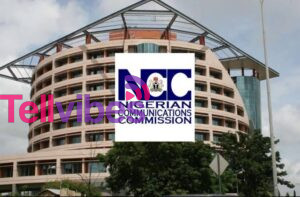In recent years, Nigeria has witnessed a steady but gradual increase in the adoption of Fifth Generation (5G) network technology, according to statistics released by the Nigerian Communications Commission (NCC).
As of November 2023, the penetration of 5G networks in served communities stood at 0.96 per cent, marking a noteworthy rise from previous months.
The NCC data reveals a progressive climb in 5G penetration, with figures ascending from 0.83 per cent in August to 0.96 per cent in November. This growth trajectory underscores a promising trend in the nation’s telecom landscape.
While specific subscriber numbers were not disclosed, the NCC reported approximately 500,000 5G subscriptions as of mid-2023. Moreover, the commission indicated that 5G technology has been deployed in approximately 30 cities across Nigeria, reflecting a concerted effort by telecommunication licensees to expand coverage.

Key players in the Nigerian telecom sector, including MTN, Mafab, and Airtel, have been instrumental in driving the proliferation of 5G networks. MTN, with a presence in over 15 cities, and Airtel, operating in strategic locations such as Lagos, Ogun, Port Harcourt, and Abuja, have actively pursued initiatives to enhance 5G accessibility. Mafab, while currently focused on Lagos and Abuja, is poised for significant expansion in the near future.
Globally, the Global System for Mobile Telecommunications Association (GSMA) has emphasized the pivotal role of advanced markets in promoting 5G adoption. Notably, regions such as North America, East Asia, and the Gulf Cooperation Council (GCC) have emerged as frontrunners in embracing this transformative technology.
According to GSMA projections, 5G is slated to surpass 4G as the dominant mobile technology by 2029, heralding a new era of connectivity and digital innovation. The association underscores the significance of 5G in advancing Sustainable Development Goals (SDGs), citing research indicating that 5G subscribers exhibit greater engagement with digital services compared to their 4G counterparts.
Furthermore, GSMA advocates for the ethical utilization of Artificial Intelligence (AI) within the mobile industry. Recognizing AI’s potential to revolutionize network optimization and customer interactions, GSMA emphasizes the importance of ethical frameworks to address concerns related to AI’s impact on society.
Nigeria’s journey towards 5G adoption reflects a progressive trajectory, with concerted efforts from regulatory bodies and telecommunication providers driving enhanced connectivity and digital inclusion. As the nation navigates the evolving landscape of telecommunications, stakeholders remain committed to fostering responsible technological advancements that prioritize ethical considerations and human-centric principles.

1 thought on “5G Adoption Surges in Nigeria: A Promising Trend in Telecom Landscape”